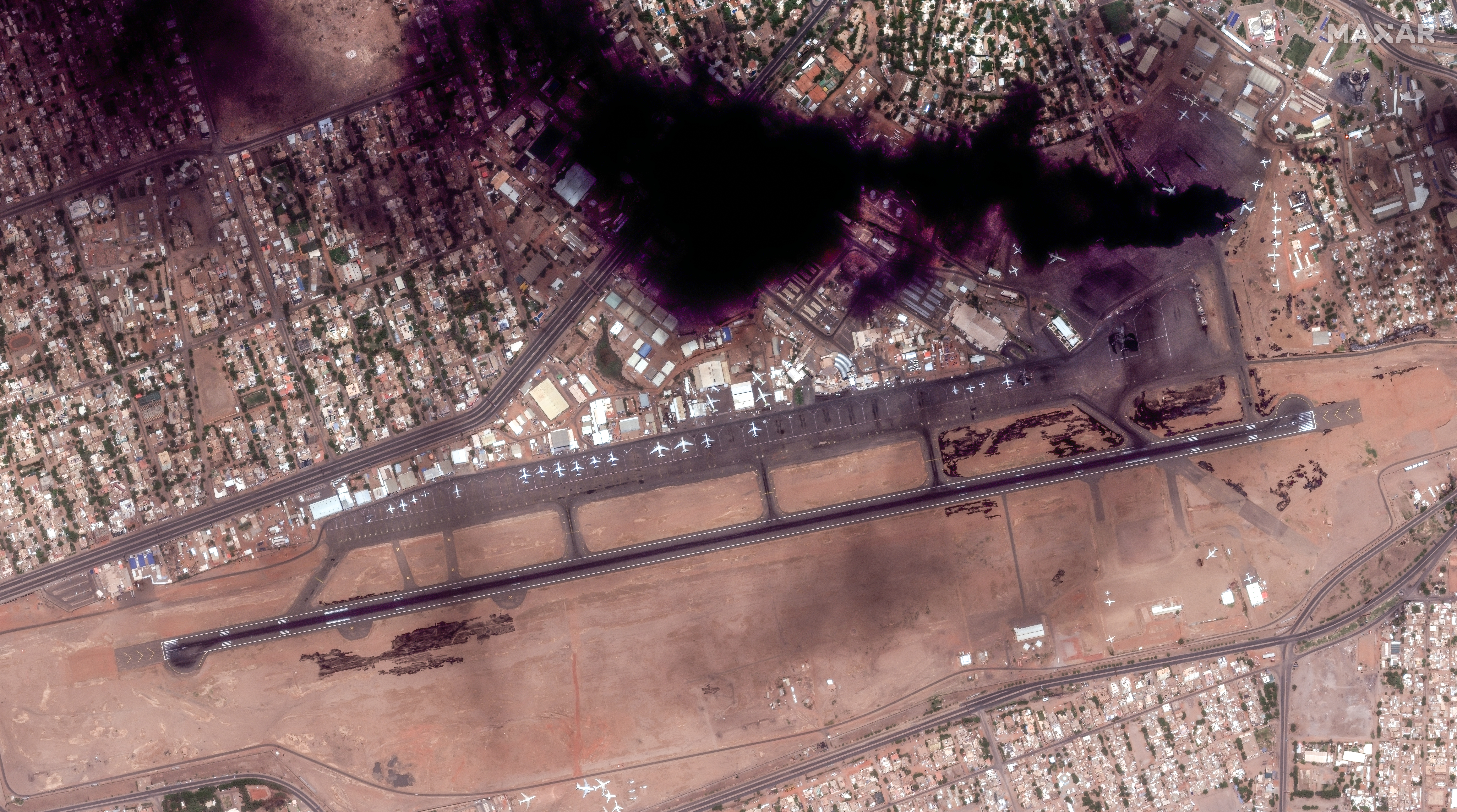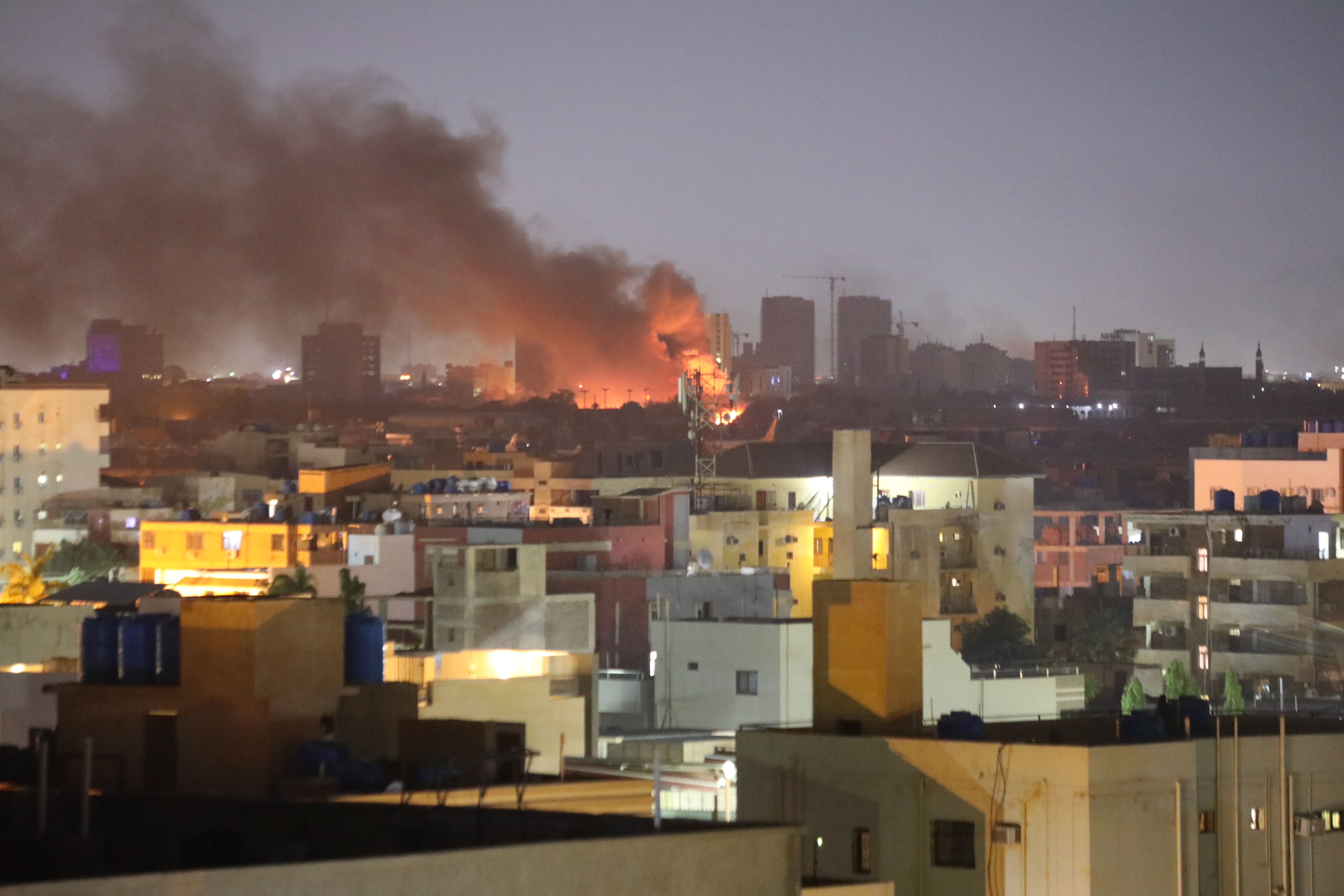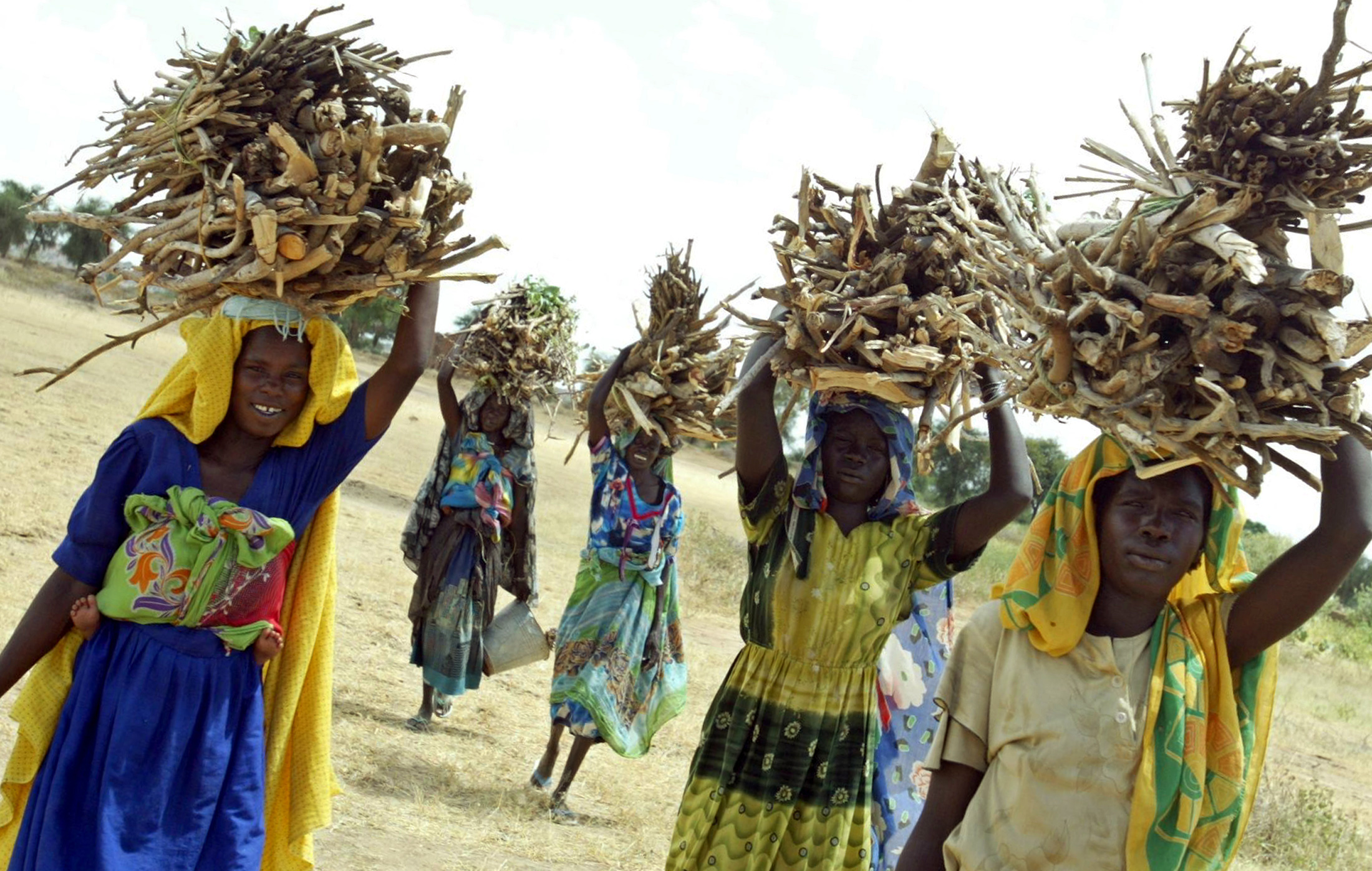
As the people of Sudan woke up to a third day of battles between the army and the paramilitary Rapid Support Forces (RSF), international concern is growing as are fears among those unable to leave their homes to get food, medical care and other essential services.
News of the death toll rising to at least 97 circulated on Monday as air raids and shelling intensified in parts of the capital, Khartoum, and its sister city, Omdurman.
White smoke rose near army headquarters in Khartoum as the fighting forced residents to hide in their homes and power outages and looting were reported.
A four-hour ceasefire that was called on Sunday to allow safe passage for trapped civilians was reportedly broken before it ended.
Medical committees are calling for calm and safe passage for patients to reach medical facilities and to allow medical teams to reach the wounded.
While the struggle for supremacy between the army and the RSF has been apparent for a few years – since the overthrow of former President Omar al-Bashir in 2019 on the back of mass protests – there are countless questions circulating about what precipitated such an open confrontation between the two forces.
From co-putschists to foes?
In October 2021, the head of the army, General Abdel Fattah al-Burhan, and the RSF’s chief, Lieutenant General Mohamed Hamdan “Hemedti” Dagalo, joined hands to stage a coup against the civilian leadership, dealing a blow to the nation’s transition to democracy.
On Thursday, tensions appeared to have started boiling over as the army announced that the RSF had made unauthorised movements in Khartoum and the northern town of Merowe.
The RSF, which is accused of brutal crackdowns during the conflict in Darfur and on pro-democracy protests, fired back that it wasn’t doing anything outside its normal duties and someone was trying to drive a wedge between Sudan’s forces.
Open conflict broke out on Saturday in the capital and in a number of other cities. Both al-Burhan and Dagalo, each with tens of thousands of soldiers deployed in Khartoum alone, promised not to negotiate or agree to a ceasefire despite mounting global diplomatic pressure.
Here’s a look at how Sudan, a country with a long history of coups, reached this point and what is at stake:

How did they get here?
Negotiations had been under way in recent months to try to return Sudan to the democratic transition halted by the October 2021 coup.
With international and regional powers watching, the armed forces and the RSF signed a preliminary deal in December with pro-democracy and civilian groups. But the agreement set out only broad outlines and left the thorniest political issues unsettled – for example, what was going to happen to all the military and paramilitary forces?
During negotiations to reach a final agreement, tensions between al-Burhan and Dagalo escalated as the two forces debated how the RSF would be integrated into the military and who would have ultimate control over fighters and weapons.
Dagalo tried to fashion himself into a supporter of the democratic transition, slamming al-Burhan in March and saying military leaders were unwilling to relinquish power.
Analysts argued that Dagalo is trying to whitewash the reputation of his paramilitary force, which began as brutal militias implicated in atrocities in the Darfur conflict.
OK, they were arguing, but why fight?
Late on Wednesday, the RSF began deploying forces around Merowe, 330km (210 miles) north of the capital. The town is strategic with its large airport, central location and downstream electric dam on the Nile River.

The next day, the RSF also sent more forces into the capital and other areas of the country. The army objected.
On Saturday morning, fighting erupted at a military base south of Khartoum, and each side blamed the other for initiating the violence. Since then, the military and the RSF have battled each other with heavy weapons, including armoured vehicles and truck-mounted machine guns, in densely populated areas of Khartoum and Omdurman. The military also started hitting RSF bases with air strikes.
The fighting spread to other parts of the country, including the strategic coastal city of Port Sudan on the Red Sea and eastern regions on the borders with Ethiopia and Eritrea. Fighting was also reported in the war-wrecked Darfur region, where United Nations facilities were attacked. The UN says three employees of the World Food Programme were killed in fighting there on Saturday.
By Monday, dozens of people had been killed and hundreds wounded.
Will there be a ceasefire and talks?
Prospects for an end to the fighting seem dim right now as al-Burhan and Dagalo have dug in, each demanding that the other surrender. The intense nature of the fighting also might make it harder for the two generals to return to negotiations.
The Muslim religious calendar might also play a role. The fighting erupted during the last week of the Islamic holy month of Ramadan. The three-day holiday of Eid al-Fitr, marking the end of the fasting month, is this week. Sudan’s people are increasingly unable to go out to buy food and other necessities, so there will be pressure for a compassionate suspension of the fighting if nothing else.
International powers have appealed for an immediate halt to hostilities as they engage in a flurry of diplomatic contacts. The UN Security Council is scheduled to discuss Sudan on Monday.
United States Secretary of State Antony Blinken renewed his call for a truce and a return to negotiations during a meeting of G7 nations on Monday.
“People in Sudan want the military back in the barracks,” he said. “They want democracy. They want the civilian-led government. Sudan needs to return to that path.”
Blinken earlier discussed the developments in Sudan with the foreign ministers of Saudi Arabia and the United Arab Emirates. The Saudi foreign minister said he spoke separately by phone with al-Burhan and Dagalo and urged them to stop “all kinds of military escalation”.
Cameron Hudson, a senior associate with the Center for Strategic and International Studies think tank and a former US diplomat, warned: “Without such [US] pressure, we could find a conflict with the same pattern of the war in Tigray [Ethiopia].”
Who are the foreign actors, and why are they there?
During al-Bashir’s decades-long rule, Russia was a dominant force in Sudan. At one point, Moscow reached an initial deal to build a naval base on Sudan’s Red Sea coast.
After al-Bashir’s removal, the US and European nations began competing with Russia for influence in Sudan, which is rich in natural resources, including gold, but has been mired in conflicts and military coups.
The military controls most of the country’s economy, but the RSF runs major gold mining areas, a key source of income for the powerful paramilitary.
Al-Burhan and Dagalo have also forged close ties with Saudi Arabia and the UAE. Sudanese troops drawn from the military and the RSF have fought alongside the Saudi-led coalition in the long-running war in Yemen.
Egypt, another regional power, also has deep ties with Sudan’s military. The two armies conduct regular war games, most recently this month. Egyptian soldiers were at a Sudanese military base in Merowe for exercises when the clashes erupted on Saturday. They were caught by the RSF, which said they would be returned to Egypt.







